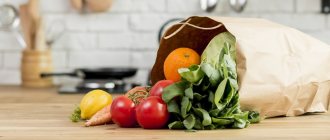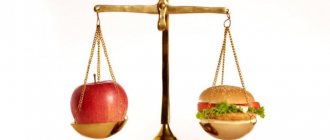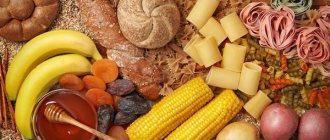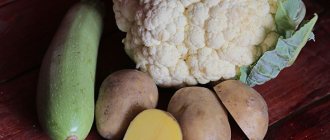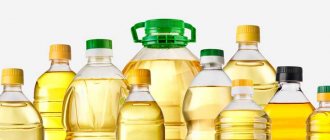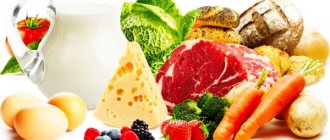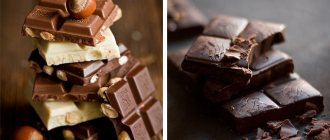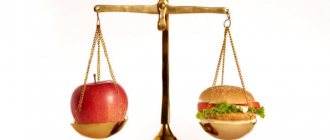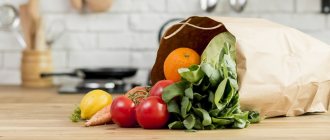Most people, both involved in sports and ordinary people, roughly distinguish between proteins, fats and carbohydrates in food. For those who are engaged in the development of the muscular system to achieve results, as well as for those who are losing weight, it is important not only to distinguish between products, but also to know which of them can be consumed, their permissible quantity and timing. Liquid carbohydrates are an important source of energy for the body, but you need to be careful with them. Comprehensive knowledge is the key to good health, proper nutrition and fitness.
Vegetables
Potatoes, yams, green peas and carrots are fast carb vegetables that provide faster energy. Potatoes are a quickly digestible food. But when you eat potatoes with protein or fatty foods, the process of digesting potatoes slows down. So if you are training multiple times then don't take it with protein or fat because at that time you need quick energy. Sweet potatoes are also a quick carbohydrate that contains a lot of fiber. Surprisingly, fiber cannot be converted into calories.
Green peas are full of carbohydrates. It also contains starch and fiber. Carrots are also rich in alpha, beta carotene and fiber. They act as an anti-aging drug in the body.
General information
All foods rich in fast carbohydrates must be eaten in the morning and afternoon. This is due to the fact that in the early days the body easily processes them into energy. It is advisable to eat fruits and berries, such as bananas, before 18:00 in the evening, otherwise even they, due to their high sugar content, can contribute to the gain of extra pounds.
People seeking to maintain a healthy, balanced diet need to reduce their intake of foods high in fast carbohydrates to a minimum.
In the case of fast carbohydrates, it is impossible to categorically exclude them from the diet, but it is necessary to remember that many products are interchangeable. For example, it is better to replace sugar and chocolate with honey and dried fruits. This is due to the fact that sugar does not contain useful substances, while honey and dried fruits in small quantities can be quite useful.
If the carbohydrate content is the same, the choice should be made in favor of foods that benefit the body.
The most popular foods high in fast carbohydrates include:
- Bread and baked goods;
- Confectionery;
- Grape;
- Potato;
- Processed rice;
- Beekeeping products;
- Cereals;
- Confitures;
- Jam;
- Any type of sugar;
- Dried fruits.
Advantages of fast carbohydrates
Fast carbs have some positive benefits, despite being considered a less healthy option due to their increased blood sugar levels. They are useful for bodybuilders or other athletes who need a quick source of energy after hard workouts. Without energy replenishment after an intense workout, the body begins to break down muscle protein to convert it into energy. Fast carbohydrates can prevent muscle loss and improve athletic performance.
Features of digestion
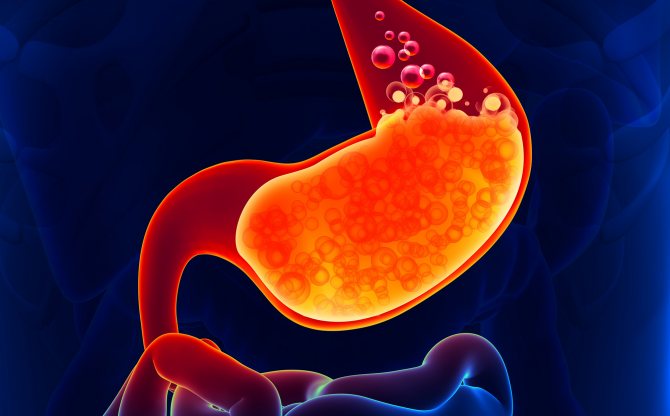
Their breakdown begins already in the oral cavity thanks to the enzyme lysozyme, which is present in saliva. You can notice this by putting a piece of candy in your mouth. Although lysozyme cannot completely break down food, especially solid complex carbohydrates, it still prepares it for the processes occurring in the stomach and intestines. Further along the esophagus, the chewed food enters the stomach. In this muscle sac everything is ground and moistened with gastric juice. Many people know that the environment in the stomach is acidic - due to the presence of hydrochloric acid in the digestive juice. Such conditions break down proteins and fats better. As for carbohydrates, solid ones are ground, but liquid ones do not require any impact. Their consistency is identical to chyme, the contents of the stomach during digestion.
When consuming liquid carbohydrates, the body bypasses the stages of digestion, which take a long time. Processing food that enters the stomach is one of them. Since liquid carbohydrates are already present in a suitable form, they almost immediately pass into the duodenum, where they are exposed to enzymes from the pancreas.
Content of fast carbohydrates in food, table for weight loss
| Bread, cereals and pasta | Serving Size | Carbohydrates (g) |
| Bread | 1 slice | 10-20 |
| Corn bread | 1 slice | 30 |
| Corn flour (dry) | 2 tbsp. | 12 |
| Semolina porridge cooked in water | ½ cup | 15 |
| Toast | ½ cup | 12 |
| all-purpose flour | 2 tbsp. | 12 |
| Oat flakes cooked in water | ½ cup | 12-15 |
| Cooked pasta | 1 glass | 45 |
| Pita | 10cm | 30-45 |
| Cooked rice | 1 glass | 45 |
| Corn tortilla | 20cm | 12 |
| Wheat flatbread | 20cm | 15 |
| 2. Nuts and legumes | Serving Size | Carbohydrates (g) |
| Beans and lentils, cooked | ½ cup | 18-22 |
| Hummus | ½ cup | 15-20 |
| Nuts | ½ cup | 15 |
| 3. Starchy vegetables | Serving Size | Carbohydrates (g) |
| Corn on the cob | 20-25 cm. | 20-30 |
| Corn, boiled or canned | ½ cup | 15 |
| Peas | ½ cup | 12 |
| Baked potatoes | average | 40 |
| Mashed potatoes | ½ cup | 15-20 |
| Sweet Potato/Yam | average | 25 |
| 4. Milk and yoghurts | Serving Size | Carbohydrates (g) |
| Almond milk | 1 glass | 1 |
| Cow's milk | 1 glass | 12 |
| Soy milk | 1 glass | 3 |
| Plain yogurt | 1 glass | 14 |
| 5. Fruit | Serving Size | Carbohydrates (g) |
| Apple | average | 15-30 |
| Applesauce | ½ cup | 15 |
| Dried apricots | 7 pieces | 15 |
| Banana | 20-25 cm | 30-45 |
| Blackberries, blueberries | 1 glass | 20 |
| Cherry | 12 | 15 |
| Dried dates | 5-6 pieces | 30 |
| Fruit cocktail | ½ cup | 15 |
| Grapefruit | half | 15 |
| Grape | 15 | 15 |
| Kiwi | small | 15 |
| Mango | ½ cup | 15 |
| Melon | 1 glass | 15 |
| Orange | average | 15 |
| Canned peaches | ½ cup | 15 |
| Pear | 150 g. | 20 |
| A pineapple | 1 glass | 20 |
| Plum | 1 plum | 10 |
| Dried prunes | 3 | 15 |
| Raisin | 2 tbsp. | 15 |
| Raspberries | 1 glass | 15 |
| Strawberry | ½ cup | 15 |
| Watermelon | 1 glass | 12 |
| 6. Snacks | Serving Size | Carbohydrates (g) |
| French fries | small package | 30 |
| Popcorn | 3 glasses | 15 |
| Chips | 30g. | 15 |
| 7. Sauces and seasonings | Serving Size | Carbohydrates (g) |
| Fruit jam | 1 tbsp. | 15 |
| Honey | 1 tbsp. | 15 |
| Ketchup | ¼ cup | 15 |
| Low fat mayonnaise | 2 tbsp. | 5 |
| Peanut butter | 2 tbsp. | 6 |
| Barbecue sauce | 2 tbsp. | 15 |
| Sweet and sour sauce | 2-3 tbsp. | 15 |
Fast absorption and no fiber
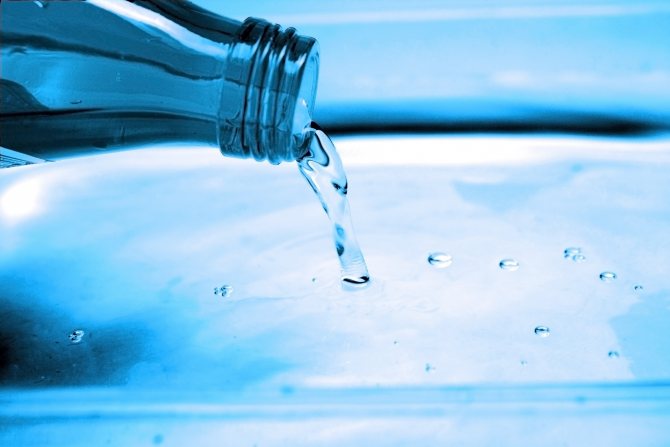
These are special compounds that are not digested by the body and are eliminated from it without retention. It takes a significant portion of digestive enzymes and a long time to separate fiber from digestible substances. If there are fewer indigestible inclusions in food (in juices, sweet drinks, sweet coffee and tea, and canned energy drinks it is almost completely absent), then the time for absorption by the body is reduced significantly. Due to their form, liquid complex carbohydrates break down much faster into glucose, fructose and galactose, which are then absorbed into the blood and distributed throughout the body. They are the main source of energy in cells and tissues. Some of these substances are immediately deposited in the liver in the form of glycogen.
From here, if necessary, funds will be drawn to replenish energy costs throughout the body by any of its systems. Running, increased heart rate, brain activity - the liver will deliver a supply of glucose to any organ, which will again be released from glycogen under the influence of hormones.
A significant part of the glucose goes to the muscles, since during sports they are the ones who get tired the most. An athlete during intense training experiences a lack of carbohydrates as a feeling of hunger. This is a signal that glycogen stored in the muscles and liver is being depleted. However, the workout is not interrupted to eat buckwheat porridge or a banana. Heaviness in the stomach will also make itself felt. They resort to special solutions of liquid carbohydrates to quickly replenish the energy reserves of a tired body.
Carbohydrates in liquid form
LIQUID CARBOHYDRATES – a specialized drink with a large amount of carbohydrates to meet the body’s energy needs, which are quickly consumed during the training process.
By using it you will receive the following advantages:
1) Liquid food is absorbed faster and better in the body.
2) Liquid carbohydrates do not cause a feeling of heaviness in the gastrointestinal tract.
3) If there is liquid food in the stomach, it is easier to train, since it is retained in the body less and is absorbed faster by the body, which means glycogen is replenished faster.
There is a debate in science about the usefulness and necessity of liquid carbohydrates in sports; they are also called energy drinks. From all these disputes, it was concluded that if the workout lasts no more than 50-60 minutes, then the effectiveness of liquid carbohydrates will be minimal. During this period of time, glycogen has not yet been used up in the body and provides the necessary energy to the body.
However, after 50-60 minutes, they quickly replenish glycogen stores, helping to maintain training intensity at the required level in the working weight range, but be careful, excessive training can cause overtraining and delay muscle recovery.
Another very important point is that taking liquid carbohydrates during training does not increase strength, they retain it for a longer period of time, in other words, they improve muscle endurance , so only a stable progression of loads will increase your strength.
Also, consuming liquid carbohydrates during training can speed up post-workout muscle recovery.
What should athletes do?
For athletes, proper nutrition is just as important as exercise. If you consume easily digestible substances in small portions (20-30 g) before training, this will be beneficial and improve performance.
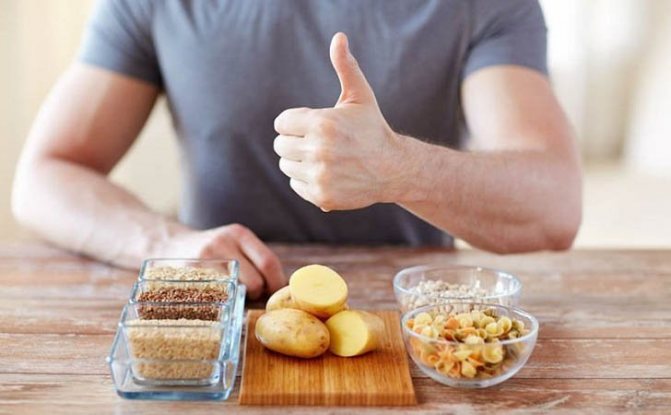
After training, bodybuilders and professional athletes are also allowed to consume foods containing fast carbohydrates to restore muscles. Optimal products are honey, banana, dried fruits. The so-called “carbohydrate window”, during which all carbohydrates are burned, lasts from 30 minutes to 2 hours after active physical activity.
The most important thing is to understand that preparing for competitions and reducing your waist a couple of centimeters are not the same thing. Therefore, sugar is contraindicated for those losing weight after moderate exercise.
List of simple carbohydrate foods
To lose excess weight, you need to be careful when consuming foods high in simple polysaccharides.
These include:
| Name | Carbohydrate content per 100 g |
| White bread | 54 |
| Watermelon | 8 |
| Sugar | 100 |
| Cake | 70 |
| Honey | 80 |
| Rice | 79 |
| Pasta | 70 |
| Cornflakes | 70 |
| Ice cream | 23 |
| Canned fruits | 80 |
| Chocolate | 75 |
| Dried apricots | 65 |
| Raisin | 70 |
Fast and slow carbohydrates table
Slow carbohydrates (GI index < 69), table:
| Product name | GI indicator | Product name | GI indicator |
| Tomatoes | 10 | Barley porridge | 22 |
| cucumbers | 20 | Durum wheat pasta | 38 |
| Bulb onions | 10 | Milk | 32 |
| Broccoli | 10 | Cottage cheese | 30 |
| White cabbage | 10 | Kefir | 25 |
| Carrot | 35 | Cream 10% | 30 |
| Olives | 15 | Sea kale | 23 |
| Olives | 15 | Sausages | 28 |
| Grapefruit | 22 | Sausage | 34 |
| Apples | 30 | Ketchup | 12 |
| Apricots | 20 | Tomato juice | 15 |
| Oranges | 35 | Kvass | 30 |
| Peaches | 30 | Wine | 30 |
| Black currant | 15 | Nuts | 15 |
| Prunes | 25 | Marmalade | 30 |
| Dried apricots | 30 | Bitter chocolate | 20 |
| Boiled potatoes | 65 | Oatmeal | 66 |
| boiled rice | 65 | Buckwheat | 50 |
| Persimmon | 55 | Rye bread | 65 |
| Melon | 60 | Processed cheese | 57 |
| Bananas | 60 | Chees Feta | 56 |
| Raisin | 65 | Grape juice | 48 |
| Mayonnaise | 60 | Sugar free coffee | 52 |
| Egg | 48 | Compote | 60 |
Fast carbohydrates (GI index > 69), table
| Product name | GI indicator | Product name | GI indicator |
| Fried potato | 95 | Squash caviar | 75 |
| Watermelon | 72 | Muesli | 80 |
| Honey | 90 | Beer | 110 |
| Rice and wheat syrup | 100 | Glucose syrup | 100 |
| Starch | 100 | Glucose | 100 |
| Maltodextrin | 95 | Baked potato | 95 |
| Rice flour | 95 | Potato starch | 95 |
| Fried potatoes, french fries | 95 | Sticky rice | 90 |
| Instant Potatoes | 90 | Gluten free white bread | 90 |
| Celery root | 85 | Cornflakes | 85 |
| Maranta | 85 | Cooked carrots | 85 |
| Refined wheat flour | 85 | Corn starch | 85 |
| Turnip | 85 | Rice pudding | 85 |
| Rice milk | 85 | Parsnip | 85 |
| Unsweetened popcorn | 85 | Hamburger buns | 85 |
| White bread for breakfast | 85 | Tapioca (cereal) | 85 |
| Rice biscuits, puffed rice | 85 | Instant rice | 85 |
| Pumpkin | 75 | Mashed potatoes | 80 |
| Corn syrup | 115 | Lasagna | 75 |
| Sweet corrugations (wafers) | 75 | Donuts | 75 |
| Rice with milk | 75 | Aerial amaranth | 70 |
| Bagels and bagels | 70 | White bread, baguette | 70 |
| Corn porridge, hominy | 70 | Biscuit | 70 |
How Carbohydrates Work
There are now several scientific opinions on how exactly carbohydrates contribute to weight gain. For example, there is the insulin hypothesis of Gary Tabus, outlined in his book “Why We Get Fat”; it has supporters and critics.
But one thing is absolutely clear: if you reduce the number of carbohydrates in your diet, weight loss is inevitable. After all, carbohydrates are “fuel” for the body: during the process of metabolism, they are converted into glucose, a source of energy.
However, it is impossible to completely eliminate carbohydrates from the diet, since they are necessary for normal metabolism. It is necessary to arrive at the correct proportion of substances consumed:
General basic requirement (for the average person, without high physical activity) - 2000 kcal per day
To make your diet balanced, enter everything you eat for the day into a calorie calculator and look at the total calorie content and the ratio of proteins, fats and carbohydrates. Determine what exactly is causing the imbalance in the required proportion: perhaps you eat too many sweets and not enough meat and eggs. Think about how to change your usual diet.
At the same time, not only the quantity of carbohydrates is important, but also their quality: beans and chocolates contain an equal amount of carbohydrates, but sweets lead to weight gain, while beans do not. The fact is that these products contain different types of carbohydrates: “fast” and “slow”.
